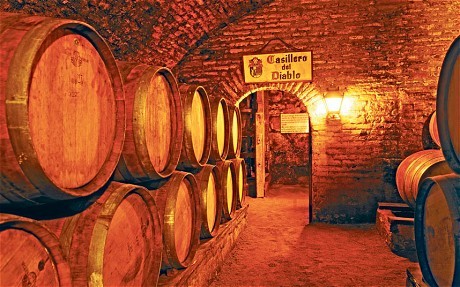How Investing in Fine Wine is Luxurious Too Save A Little Money
Post on: 9 Июнь, 2015 No Comment

If you’re new here, you may want to subscribe to my RSS feed. Thanks for visiting!
Apart from being a smooth, delicious beverage, wine can also be a valuable type of investment. In some cases, it can generate annual returns of 10-15%. Of course, this can only happen if the investor knows what he’s doing. Not all wines available in the marketplace are luxurious; in fact, only a small percentage of the world’s supply has the potential of increasing in value. Nowadays, as the global consumption and demand of some of the finest wines amplifies, there are viable opportunities to build profitable wine collections.
Fine wine prices have risen by 10% per year in the last 25 years. There have been quiet periods as well (between 1998 and 2002), but in general the industry is quite stable. Some of the finest wines in the world come from France (Bordeaux, Mouton Rothschild. Burgundy, and others). If you want to invest, you must understand from the very start that your product needs about 5 to 10 years to appreciate and increase in value.
Consistent appreciation throughout the recession
As opposite to traditional types of investments (stocks, bonds, real estate, etc), certain luxury wines such as Bordeaux have shown a steady appreciation in overall value. The FTSE 100 index recorded an investment appreciation of 3.4% in the last 10 years, whereas fine wine (the best 100) has seen an average increase of 40%. The numbers seem rather incredible to believe, and not many people would to invest in fine wine over real estate or stocks. Many top tier investors are not willing to spend money on something they don’t know for sure it will bring them a profit.
Global investors constantly seek minimal risk and maximum capital growth for their investment portfolios, especially now that we’re dealing with an extremely volatile financial market. Fortunately, unlike most investment types, fine wine doesn’t deflate. This “liquid asset” will always maintain its value because no matter what happens, there will always be people willing to pay more for quality. Furthermore, the supply is finite; assuming that the demand will never stop, eventually people will end up fighting with each other for the best bottle of wine.
Profitable, tax-free & safe
Luxury wines are recession proof. This is because they’re not affected by financial conditions. In spite of market spikes and global economic fluctuations, the wine industry has managed to stay afloat. Unlike conventional investments, luxury wines are not influenced by interest rate changes and exchange. Additionally, there’s a negative association between the stock market and the fine wine market. A conventional investment type such as real estate will have a lot to bear if the stock market crashes; in contrast, fine wine is a type of investment that remains unaffected by such financial fluctuations.
There’s also a finite supply of the finest investment grade wines that are produced annually; in time, increasingly more bottles are consumed which automatically means that the demand will increase. In spite of impending economic downturn and financial crises, the population will always consume wine. What’s even greater is that investing in luxury wines is tax-free. With no CGT and VAT, the profit an investor obtains with fine wine remains entirely his.
Wine is regarded as a wasting asset, and this is why the investment is no susceptible to capital gain tax. Smart investors know that if they take precaution measures, they have nothing to worry about – this means storing the wine in ideal conditions, checking it periodically and doing business with reputable merchants only.
Luxurious wines bring the most substantial profits
Investing in top-quality wine has turned into an international phenomenon. Smart investors hunting for more safety than commodities and stocks have finally understood that the fine wine market has great financial potential, too. Several of the world’s most expensive and famous wines like Chateau Lafite Rothschild for instance, started appealing to investors in 2008, when the average price increased by 150% throughout 2009. The returns are quite remarkable, and this is exactly why investors should pay more attention to the fine wine market over other commodities.
However, only a distinct selection of luxurious wines increase in value, so if you want to invest, first you should get to know the market. Consult with specialists in the business, ask for their guidance, and always trade through an authorized auction house.














